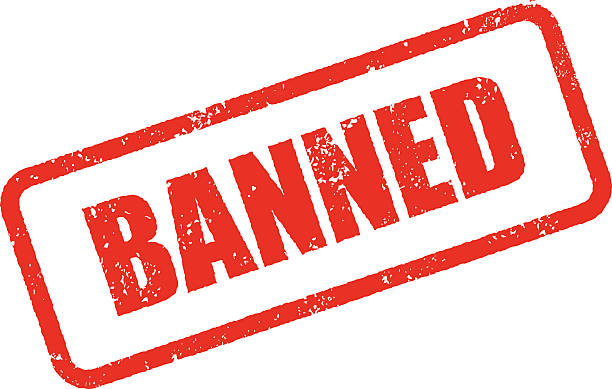Almost every other country is different, and each country’s laws are unique. These laws occasionally border on the ridiculous, highlighting important religious or cultural beliefs unique to that area.
We hardly ever learn enough about the country’s legislation we visit as travellers but knowing them can sometimes help us avoid unpleasant situations. Furthermore, some of these laws are so unusual we find it difficult to believe them.
You can’t have everything you wish for, often for your own good. So, legally banning stuff is crucial as long as it makes sense, such as forbidding the sale of a minigun in the United States or prohibiting the sale of a kidney in Iran. However, why ketchup, exactly? What harm can tomato sauce cause to anyone? It’s a funny ban!
Many strange things are banned in different countries worldwide. Check out these ten bizarre things banned worldwide, including wearing blue jeans or yellow clothing to hiring an expert to do your assignments.
Fortunately, hiring professionals for academic assistance and law assignment help is not in most countries. You are only using services to improve your papers and grades. And it is allowed as long as students benefit from registered companies such as Law Essay Teachers.
We’ve compiled a list of weird laws worldwide you may not believe exists. But when you’re travelling, you certainly don’t want to wind up behind bars!
Strange Things Banned Globally
Following is a list of bizarre bans by the law in different countries.
1. Vicks Nasal Inhaler Ban
Chest infections and runny noses are usual in a mildly colder climate, like in the UK or Canada. These infections get even worse in winters. Vick’s inhalers are widely used in the UK and Europe to help ease congestion and unlock nasal passages.
However, when planning to travel to Japan, you’d best leave your Vick’s Nebulizer at home or risk a fine or even deportation! As mentioned above, any drugs containing pseudoephedrine, such as Suphedrin PE and the Vicks nasal Inhaler, are prohibited in Japan due to the country’s strict anti-stimulant drug laws.
2. Bubble Gum Ban
When fools violate the rules, everyone pays the price. In 1992, Singapore prohibited all bubble gum materials after vandals messed with the MRT system, and the Planning & Development Panel spent $150,000 per year cleaning gum litres.
Anyone trying to import, sell, or manufacture gum in Singapore faces fines and jail time, excluding nicotine and dental gums. So, try not to get caught trying to blow bubbles in the streets of Singapore!
3. The Baby Walkers Ban
Baby walkers are explicitly mentioned as a retail product that “might pose a danger to people” by the Canada Border Services Agency. It is a simple tool that helps babies practice walking in the early months and stay active. However, since this item was forbidden in 2004 for being too dangerous, Canadian children will crawl before walking.
Anyone caught with one, even at a resale flea market, faces fines of up to CA$100,000 (roughly $72,600). Moreover, some experts in the United States are also advocating for their prohibition.
4. Ban on Bird Feeding
With thousands of pigeons herding to Saint Mark’s Square in Venice, attracted by tourists willing to hand out food in exchange for Instagram-worthy photos, Venice lawmakers made it illegal to feed the birds in 2008.
The cleanup from the birds is said to cost each citizen €275 per year, so the tables have now been turned. You could be fined up to €700 if you’re captured feeding the birds. Instead, get that photograph shot of Venice’s stunning bridges.
5. Ponytail Haircut Ban
To regulate the enormous impact on Western culture, the Iranian government has chosen to ban numerous western products, including modern music, hip-hop culture, jeans, pet dogs and cats, and tattoo designs.
However, Western Haircuts takes the lead among the slew of vexing issues. Ponytails, spiked hair, and mullets were popular hairstyles. These haircuts were banned by Iran’s barber union, which believed that Western hairstyles were a sign of worshipping the devil.
6. The Famous Ketchup Ban
Several media sources have claimed France has a grudge against tomato sauce since French students will no longer taste the delicious food.
French schools are only concerned about their student’s health. Yes, ketchup is banned in French school cafeterias because the government believes teenagers consume too much of it, destroying the originality of this traditional cuisine. The government imposed this fat-reduction restriction in 2011.
The ban’s goal was to improve the nutritional quality of school meals in France.
7. Ban on Watching TV to Everything
We are not sure how people live in the world’s most isolated country; wouldn’t it drive you insane? North Koreans are prohibited from watching television, listening to music, leaving the country, expressing their opinions, laughing in public, practising religion, driving, connecting to the outside world, and wearing blue jeans.
Finally, calling North Korea North Korea is a crime. You must refer to it as “Korea.” Otherwise, prepare to go to jail.
8. Military Uniform Ban
In Nigeria, wearing any military uniform, including camouflage, can result in a month in prison.
The law is “archaic,” according to House of Representatives member Oloye Akin Alabi, but Nigeria isn’t the only country. Grenada, Jamaica, and Barbados all prohibit the use of camouflage.
9. The WhatsApp Ban
Communications on social networking sites such as WhatsApp may appear personal but keep the language clean in Dubai. When you are in the UAE, using foul language, or being disrespectful to another person while operating a network or any information technology is punishable.
The oil-rich hub has long banned web calling apps like WhatsApp and FaceTime to protect its state-run telecoms companies’ earnings and national security reasons.
10. Beyonce Ban
Being a celebrity entails being well-known and adored all over the world.
Beyoncé’s steamy video content and revealing outfits have been deemed too provocative by the religious country. So, they did the only thing they might think of and forbade her from entering the country.
Thoughts
All these bans are ridiculous. How can a baby walker be dangerous if we talk about it in general terms? Or how can a singer pose any danger to religion? If your institute asks you to write a law essay on such a topic, go for law assignment help. How can helping a child to achieve better grades be illegal?
It is not unlawful in the UK and many other countries. So, if you are willing to opt for professional help, you can always count on the Law Essay Teachers. We have English native writers and professionals who take care of the assignments and projects, deliver work on time, and help you get good grades.
Read More about WPC2027





